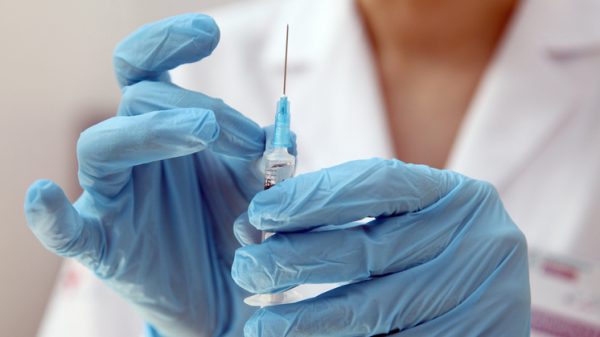
The Bank of England has signaled that interest rates could remain above 5% until 2026, driving up spending on more than four million mortgage holders.
Politicians voted 6 to 3 to raise interest rates by 0.25 percentage points to a 15-year high of 5.25% as it recognizes that higher wages and prices are becoming an integral part of the economy.
Andrew Bailey, Governor of the Bank of England, said it was critical that officials «be absolutely sure» that inflation was down «to the 2 percent target.»
The latest increase means more than four million homeowners will be hit by higher mortgage rates by the end of 2026, the Bank estimates, equivalent to nearly half of all home mortgage holders.
This includes those coming to the end of fixed rate deals over the next three years as well as variable rate deals, and this is in addition to the four million households that have already seen a jump in monthly payments.
0308 Bank rate reaches 5.25
The typical mortgage holder who completes a fixed-rate deal in the second half of this year will see monthly payments increase by around £220.
Mark Harris, chief executive of mortgage broker SPF Private Clients, said: «Borrowers who refuse cheap fixes will face a real payment shock.»
The bank expects home prices to fall «modestly» in the coming months . , as officials have warned that more landlords are dumping their properties amid soaring mortgage values.
Rising interest rates are bad news for borrowers, but they should also lead to more income for savers.
Nationwide and HSBC were among the first providers to improve savings deals following the Bank's announcement.
The UK's largest building society announced its Triple Access Online cash. Isa will now pay 4.25 percent annual interest, up from 3.5 percent. , with contributors allowed to invest up to £20,000 in duty-free wrapping each year.
Starting next week, HSBC is raising rates on its Premier instant savings accounts by 0.25% pips to 2.25% and 2% on some other accounts.
The city's regulator has previously raised concerns about that many large banks do not fully pass on the benefits of higher rates to depositors.
Mr. Bailey said that is now changing. He said banks have «almost completely» increased savings rates since the latest interest rate hike.
Figures compiled by MoneyFacts show that the average interest rate paid on an instant account rose from 2.35% to 2.8% between June and June. July.
This represents an increase of 0.45 percentage points, reflecting almost the entire Bank's 0.5 percentage point move in June.
This compares to a much slower response when the Bank initially began to raise borrowing costs. When the Monetary Policy Committee (MPC) raised its base rate from 0.1% in December 2021 to 1.25% in June 2022, depositor returns remained virtually unchanged, climbing from 0.1% to 0.27% in the same period, according to the data of the Bank.
Threadneedle Street officials also said wage growth continued to be stronger than expected and the danger of a wage-price spiral is now beginning to 'crystallize'.
Wage growth vs.
Inflation was also forecast to fall faster in the coming months, and Rishi Sunak is expected to deliver on his promise to halve inflation by the end of this year.
Policy makers have said a fall in global energy prices means inflation will fall to around 4.9% by the last quarter of 2023 from over 10% at the start of 2023.
However, inflation is expected to which currently stands at 7.9 percent, will not return to the Bank's target of 2 percent over the next two years. This is because interest rates will peak at 6 percent and remain above 5 percent for the next three years.
The authorities warned that upward pressure on prices and wages «will probably take longer to ease than it started» as some workers continue to put pressure on their employers to raise wages and companies try to protect profit margins. .
Inflation cools in 2007
A separate study suggests that the economy will flat out at best as high interest rates slow service sector growth.
Service output rose in July the slowest pace since January, when analysts warned of high inflation, soaring borrowing costs and falling confidence, «knocked the wind out of the service sector's sail.»
S&P Global/CIPS UK Purchasing Managers Index Services, a key business indicator, fell to 51.5 from 53.7 in June.
Analysts have warned that a period of growth that started at the start of the year is rapidly coming to an end as the economic outlook deteriorates.
























































Свежие комментарии